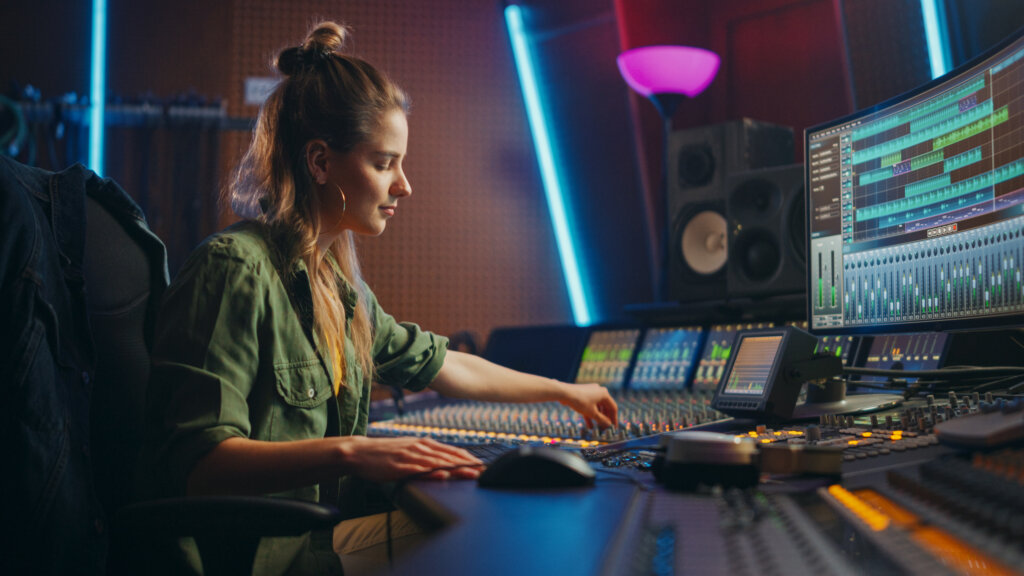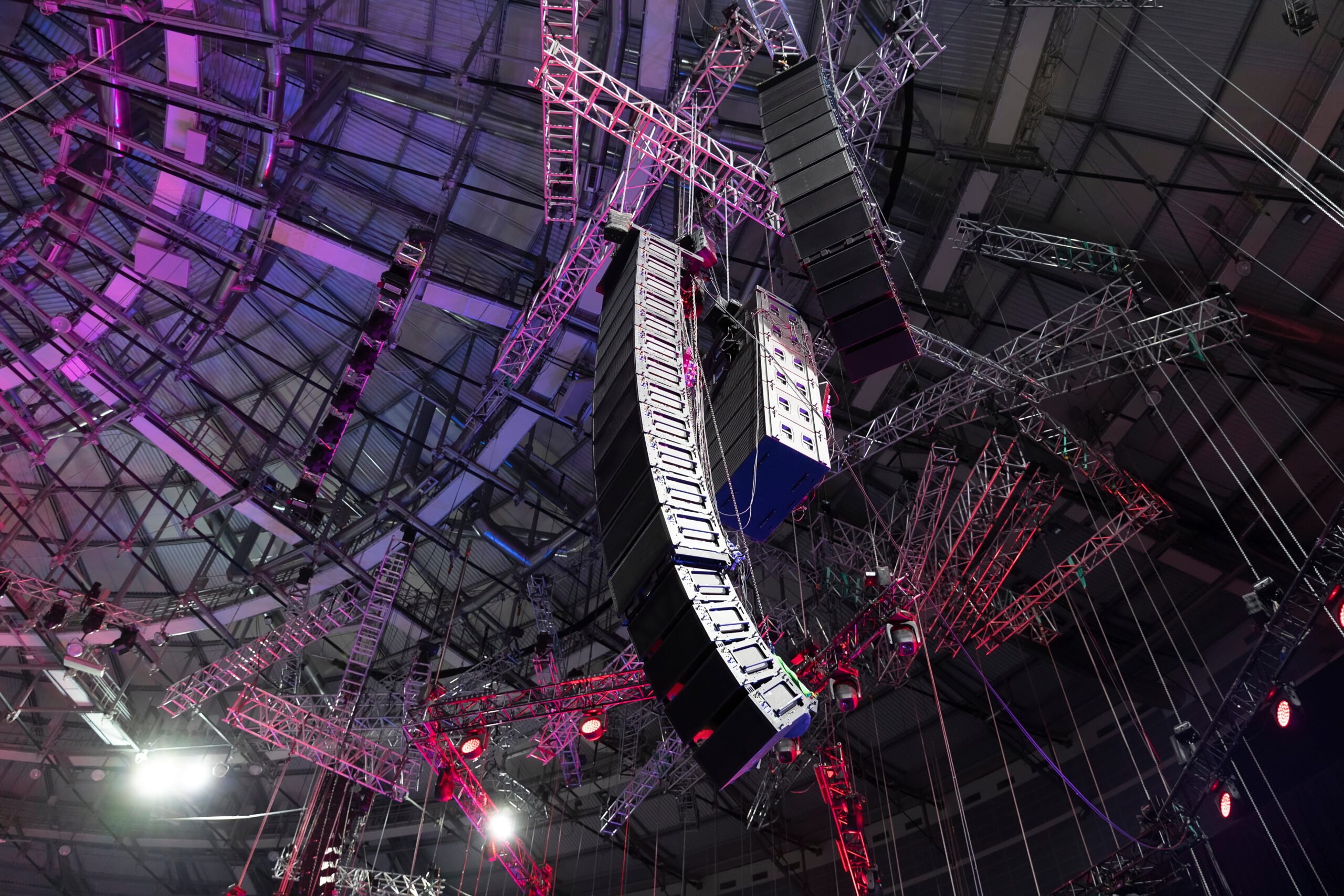If you want to make a profession out of music production, the best advice will always come from those who have already made it. You’ll be surprised at how simple these bits of advice seem, but how they will ultimately improve not just your future practices and productivity but also your flexibility and surety as an aspiring music producer. The music production recommendations you’ll find here are a combination of practical and behavioral advice to help you grow in your music production career.
Being a professional music producer takes time, whether you want to work in a top-tier studio or just learn how to compose acceptable music at home. There are several techniques to developing one’s music production talents; however, there are a few common pitfalls to avoid. Here are some suggestions from today’s most famous artists, producers, and DJs for budding music producers. Whether you’re new to music production or have been doing it for a while, we hope these suggestions help you shorten your learning curve.
1. Begin with a Specific Vision
Like with any other vocation that primarily requires creativity, an excellent beginning point is to have a very definite idea of what you want the ultimate outcome to be. When it comes to composing and editing music, you may be as wacky and inventive as you want, and your concept will most likely morph into something new as you go. However, not having a predetermined idea of your desired output can make you feel lost—and it will probably show once you complete your project.
2. Get Rid of Distractions
Your work studio should be a favorable environment, so be sure to minimize or reduce distractions to a minimum. Minor interruptions at work may easily knock most individuals off-balance, while others can fluidly tune out disturbances. The truth is that no one is wholly concentrated on their profession at all times. Ideally, a music studio should be soundproofed to keep studio noise in and outside noise out. Turn off your television, smartphone, and even your watches (or just take them off). Also, have separate computers for studio work and non-production tasks such as email and social networking.
3. Work Where You Are Most at Ease
You must be emotionally and physically “in the zone” to produce innovative outcomes. Work in the area where you believe you will be most at ease. It doesn’t have to be in a genuine, professional studio, which might be scary for newcomers (and cost a lot in rental hours). You can construct your home recording studio if it’s where you feel at ease. Improving workplace comfort may boost morale and aid in the development of a healthy culture. In general, when you are at ease with your work, you will be happy, and your morale will enhance your productivity in generating better music.
4. Learn the Proper Skills
Nowadays, knowing how to construct a tune is just as crucial as using music production software. Learn all you can about your chosen program. And use it to blend bits of music, utilize reference recordings to better your mixing, and gather enough expertise to identify the quickest, most effective methods to create the results you want.
5. Do not Push Yourself too Far
It is an excellent option to pause and take a break when you feel like you’ve hit a creative wall and can’t really get it perfect. Take a quick stroll outdoors, read a book, listen to other mixes, or seek inspiration. Do something different for a few minutes and return when you’re feeling more rejuvenated.
6. Think Outside the Box
Don’t be afraid to experiment and take inspiration from various genres. Sticking to the same, tried-and-true sound is a safe option, but that is not how great music is created. If you want to create something extraordinary, do something out of the norm for your genre. Listen to songs from various genres and evaluate how you may incorporate the best features into your music.
7. Make an Effort to Stand Out
When making your music, it’s natural to want to sound like your favorite performer. However, do not just replicate songs you and everyone else are already acquainted with. Avoid listening to other people’s music before starting your employment so that you can concentrate on producing your melodies, lyrics, and mixes.
8. Review Your First Mixes
If you are dissatisfied with your current output, numerous experts advocate going back and examining your early mixes. It’s common to have hundreds of mixdown versions of a single track, and you’ll soon discover that the best one is still the first—and that’s great.
9. Be Flexible.
Making unique and original music is not always the “professional” thing. Don’t be afraid to use presets and sample packs if you think (and hear) they’ll work best with your song. Continue to keep your options and ideas open, and keep looking for other sound sources that might enhance your tracks.
10. Go with the Flow.
Allow your imagination to go wild and then follow it. Experiment and see where it takes you, whether you’re writing songs, creating melodies, mixing, or perfecting sounds. The conclusion may astound you—in a good way. Furthermore, you should be proud of who you are. Most of the time, it’s easy to get caught up in the excitement of trying to mislead an A&R, impressing your fans, or signing with a company. Producing music for others will tire you at the end of the day – it has to come from deep inside you. So, there you have it, stay true to yourself and don’t jump on every wave.
11. Don’t Overdo It
The classic phrase “less is more” applies to almost everything. Given today’s tendency of overburdening tracks with effects, it’s easy to overdo it the longer you work on a track. If it isn’t too late, attempt to limit and remove any unneeded impacts. After all, keeping things simple isn’t necessarily a bad thing.
For example, to make room for all of the instruments in your mix, you may need to use an equalizer to remove some of the frequencies from specific sounds. Featuring two instruments occupying similar frequencies might make your mix messy, but dropping down specific frequencies from one can make them sound better.
12. Know When to Stop
Another error to avoid while editing and mixing music is straining too hard to save a worthless track. If you find it difficult to “complete” it even after a creative break, don’t be too hard on yourself for quitting up and moving on.
13. Understand Your Equipment
Any skilled producer can assure you that it’s not how many plug-ins you have that matter but how you utilize them. There is no need for seven compressors and five equalizers. That will just hold you back. Keep your toolkit to a minimum. What you use to produce music is less essential than how you make it. After all, the person behind all the equipment is the source of creativity. So, feel free to create your own music using any tools you have available to you.
14. Prepare to Make Financial Investments
Consider spending a significant amount of your funds getting your career off to a decent start. This is particularly the case if you intend to construct your home recording studio.
You could be capable of earning a profit on these investments as time goes on, but be prepared to spend the majority of it again on equipment upgrades, promos (such as music videos and advertisements), and other expenses. Check out the digital console and wired microphone selection Gearsupply has for some gear upgrade ideas.
Having a personal financial plan on managing your music production career can help you retain discipline to stay within specified benchmarks and achieve your goals. A financial plan allows you to better understand your finances by setting quantifiable financial objectives and the impacts of actions you make.
15. Make Music with Tried-And-True Equipment.
When making investments, ensure you spend your money responsibly when purchasing integral music production equipment.
These should undoubtedly include high-performance laptops or desktop computers, as well as dependable, studio-quality music hardware, ranging from main studio speakers and recording microphones to mixers and headphones.
Quality tools might be expensive; however, if you take proper care of them, they will be more durable and reciprocate your investment. Keeping your equipment properly stowed, cleaned, and maintained will save you time and money while making your projects and occupations much more pleasant.
16. Collaborate With Others
You’ll need all the help you can get in this competitive market. Work with younger individuals to stay up with trends and obtain innovative thoughts and with elderly people who can provide you with industry wisdom.
Working with other people will almost certainly teach you many new things. Allowing another intellect to come in and assist you in making music is critical. Not only will this help you expand your skillset, but it will also be highly gratifying and even enjoyable.
Also, be open to the idea of becoming a community. There are just too many advantages to making friends in the music world. You’ll not only receive fantastic feedback, but you can also work together to optimize exposure and tackle the challenging and complicated areas of the music industry.
17. Request for Honest Feedback and be Open to Constructive Criticism
Another advantage of working with others is that you may have someone else listen to your music objectively. Make use of this chance to get honest feedback from trustworthy and critical colleagues and mentors who can assist you in getting work done quicker.
This is by discarding poor ideas sooner, and ultimately growing as a producer. Progress is incredibly difficult to achieve without that magical combo of feedback and real implementation. Criticism may feel personal at first, so you’ll need to learn not to take constructive criticism personally.
18. Have Faith in Your Ears
Once you’re caught in a musical jam while experimenting with various settings, pay some attention to your composition with your eyes or screen closed. Don’t put a lot of trust in the graphics of your digital audio editing program.
Trust your ears and instincts as you examine your track from a new angle. Meters, for example, maybe great instruments provided you know how to utilize them. They might be intimidating if you’re just starting. Learn to trust your ears when something relates to what sounds nice, and then utilize metering as a tool to help you. Close your eyes and listen when you get stranded on a mix. Then, when required, make changes.
19. Have a Routine
Keep practicing. Make time each week to practice your skill. Commit to yourself and block off some time in your calendar for dedicated music time.
For example, the more you go to the gym regularly, the simpler it becomes to go because it becomes part of your routine. It has been claimed that becoming a master of anything takes 10,000 hours of practice. So, start making time for production and then stick with it for the long haul.
20. Finish Your Work with Purpose
Putting a song together is an art form in and of itself. Realizing when to say “this is decent sufficiently” is necessary for gaining your art forward into the community. Procrastination is frequently disguised as perfectionism.
As such, learn when to declare a track finished, stamp your confirmation on it, and release it. Will this be your best work? Most likely not. But, at the very least, it’s finished, and your audiences, pals, and family can listen, love, and share it.
Don’t fall into the trap of not having to release songs because they’re “not ready yet.” That’s a dangerous path that will leave you with countless “almost-ready” songs on your hard drive. Don’t be afraid to declare that you’re done.
Begin Working on Your Next Project.
Now that you’ve mastered the fundamentals of music production, it’s time to jump into your next project and get to work. Check out online learning sites for additional lessons and production ideas, including audio mixing, voice production, and music creation.
Want to start making music at home but don’t know where to get started? Check out this helpful video from LANDR.



